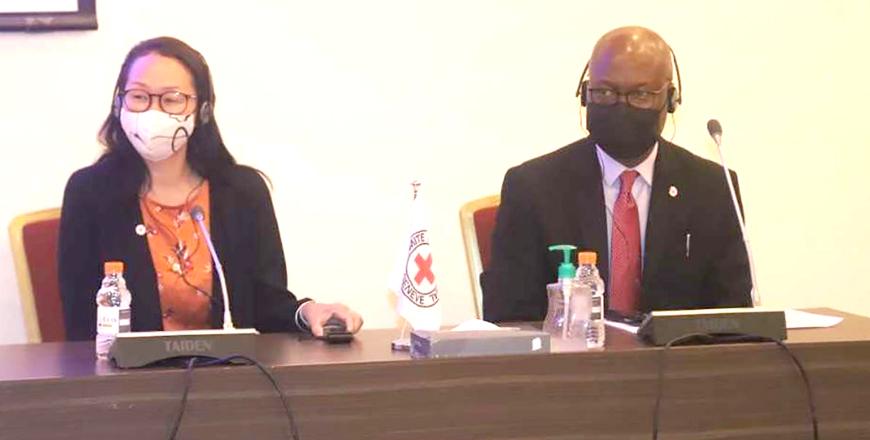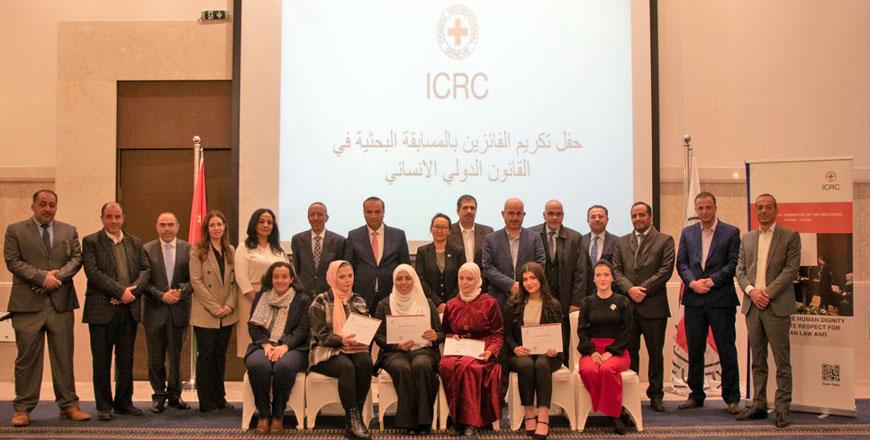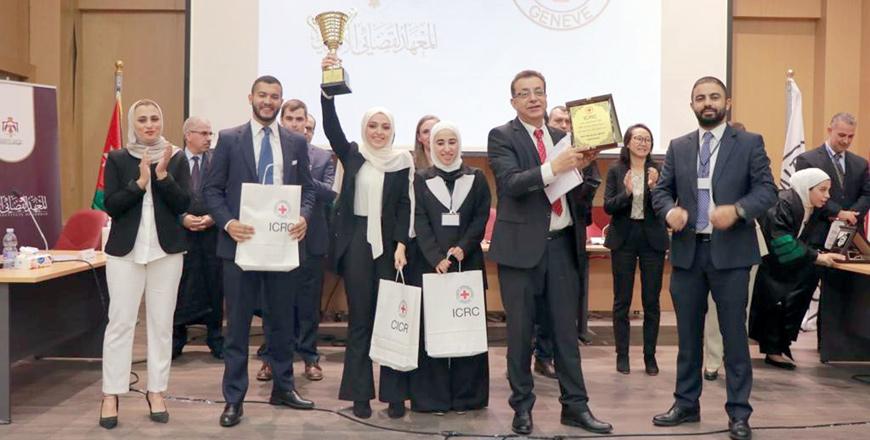You are here
ICRC highlights need for ethical humanitarian reporting
By Batool Ghaith - Oct 24,2021 - Last updated at Oct 24,2021

Head of ICRC mission in Jordan Sarah Avrillaud and ICRC Communications Coordinator Adebayo Olowo Ake during a media workshop on Sunday (Petra photo)
AMMAN — The International Committee of the Red Cross (ICRC) organised a specialised training course titled “Ethics of Humanitarian Reporting” in Amman for 14 journalists.
The two-day workshop, which started on Sunday, provides trainees with theoretical and practical training on the ethics of humanitarian reporting, international humanitarian law, the history of the ICRC, and much more.
In the opening remarks, Head of ICRC mission in Jordan Sarah Avrillaud stressed the importance of strengthening the partnership between the ICRC and the media.
She pointed to the importance of the workshop in providing participants with the skills necessary to prepare accurate humanitarian reports that do not cause more distress, but instead create relief for the people, families and parties targeted in the report.
She pointed out that the committee has begun to allocate an annual humanitarian competition, along with prizes for the best press reports.
ICRC Communications Coordinator Adebayo Olowo Ake kicked off the workshop by giving a brief on the ICRC and the International Red Cross & Red Crescent Movement, which is the oldest humanitarian organisation, established in 1863.
Ake indicated that each country in the world has a “Red Cross” or “Red Crescent” organisation, depending on which emblem the country chooses.
He also noted that the ICRC works during armed conflict and disasters as well, according to seven fundamental principles: Humanity, impartiality, neutrality, independence, voluntary service, unity and universality.
Ake pointed out that the ICRC is working with 20 universities in Jordan to teach international humanitarian law (IHL).
Amman is the one of the largest logistic hubs for ICRC worldwide. “One third of the ICRC staff receives their training in Amman,” he said.
He highlighted how the ICRC assisted Jordan during the COVID-19 pandemic, providing help for 27 prisons and four hospitals.
During the pandemic, 2,878 rubber gloves were distributed to places of detention for inmates and families visiting them, according to the presentation.
Ake stressed the importance of journalists knowing the IHL basics to be able to report accurately
“The ICRC protects journalists covering armed conflicts under the fourth Geneva Convention,” he added.
Related Articles
AMMAN — Shedding light on people’s suffering and humanising media is crucial, said President of the Jordan Red Crescent (JRC) Mohammed Hadid
AMMAN — The International Committee of the Red Cross (ICRC) on Monday announced the names of the winning students of the first International
AMMAN — The fifth edition of the National Moot Court Competition in International Humanitarian Law (IHL) concluded on Wednesday with a team


















